Well, it’s hard for me to resist, evidently. A couple of years ago I used it here while considering “the work of art in the age of Googled reproduction.” Not long after that I cited it again — in a column about “pictures of the familiar,” noting Mika Matsuzaki and Benjamin Mako Hill’s series of photographs of people taking photographs (often with smartphones) of the famous painting.
So naturally I was interested in a particular detail in a recent and pretty gloomy New Criterion essay about how technology, and specifically mobile phone technology, is reshaping the museum experience. Taking pictures in museums isn’t a recent development, but Eric Gibson singled out the impact of the self-facing smartphone camera for introducing a whole new museum-photography culture:
Rather than contemplating the works on view, visitors now pose next to them for their portrait. In pre-digital photography the subject was the work of art. Now it is the visitor; the artwork is secondary. Where previously the message of such images was “I have seen,” now it is “I was here."Notably, for my purposes, he suggests “the epicenter of this phenomenon” is “Room 6 of the Louvre’s Denon Wing, locus of the Mona Lisa.”
I immediately turned to the Web to see what searching for Mona Lisa selfies might turn up. I did so purely out of curiosity (and general avoidance of work), but it turned out to be a rewarding exercise.
First, for visual context, take a look at this helpful photo from this past summer of the scrum in Room 6. I’m only able to pick out one person who literally has her back to the painting, but it’s certainly notable how few members of this crowd are looking at it directly, and not through some device or other. This photo maybe comes closer to making Gibson’s point — and in a nice detail it appears that you can just glimpse the selfie-making protagonist’s own image in someone else’s nearby phone screen.
But those aren’t exactly the sort of images I set out to find. I already understand the phenomenon Gibson is describing. Rather than think about not-looking, I wanted to look — at what sorts of images the practice migth be creating. And now "I have seen:" To my surprise, what I found struck me as pretty charming – sweet, funny, earnest.
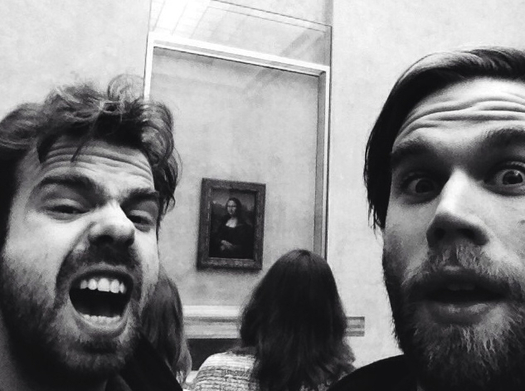
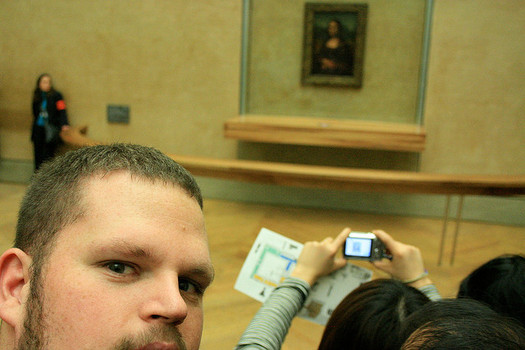
“Me and the Mona Lisa,” by Aryk Moore on Flickr
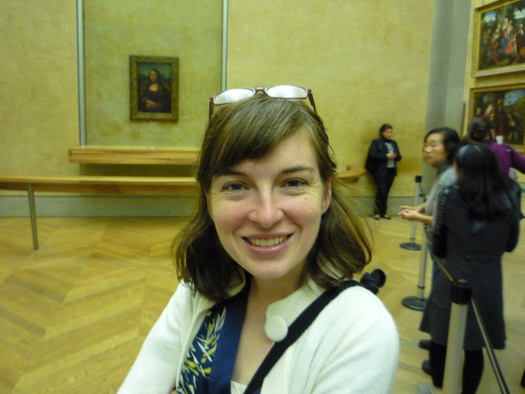
“Shelby & Mona,” by shelbyfoster17 on Flickr
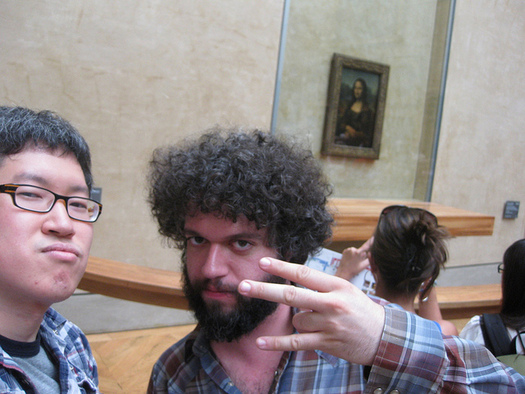
“Me, Cruse, The Mona Lisa,” by Bobby Huang on Flickr
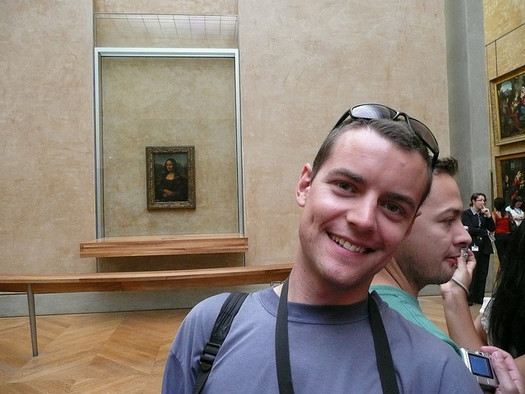
“Me and the Mona Lisa,” by Brendan on Flickr
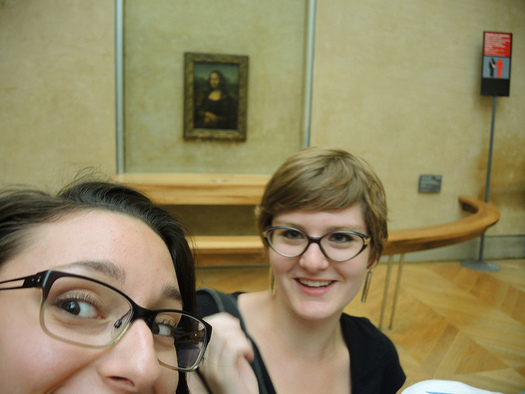
“selfie with Lisa,” by Janelle on Flickr
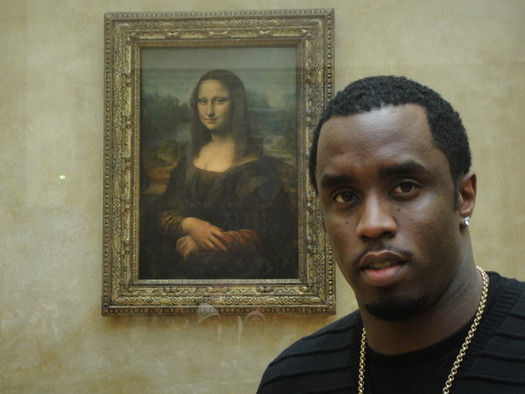
“Me at the MONA LISA!!!!!!!!,” by Diddy on Twitter
It’s hard to say how many of these are true selfies — that is, taken by the subject — and most of what I found actually pre-dated 2013. (That P. Diddy selfie at the end, which is real, is from 2010.)Again, my agenda here has nothing to do with technology’s impact on the museum experience, and I want to underscore that I’m not picking on any of these people. Who could? For all I know they all studied the painting at length before creating these images. And even if they didn’t, I like these pictures, particularly in a group — from the silly to the sincere. Even Diddy, describing himself as being “at” the Mona Lisa, seems unusually appealing, with all those goofy exclamation points. And surely that Instagram from thedarcys (The Darcys are a Canadian band, I gather) is having intentional fun with the weird intersection of a venerated image and contemporary, ubiquitous image-making. I’m sure an even better collection could be put together through a more considered search.
Possibly I’m just caught up in The Year of the Selfie, but, honestly, taking a Mona Lisa selfie makes more sense to me than taking a straight photograph of one of the most widely documented and reproduced visual works in the world. In a sense, the truly absurd image in this accidental series is the Mona Lisa itself — kept at a physical distance, behind glass, surrounded by crowds, it’s resistant to being really seen precisely because it’s so famously familiar. What in the world are we supposed to in its presence?
Take another picture, obviously. And this time, get in the frame.
